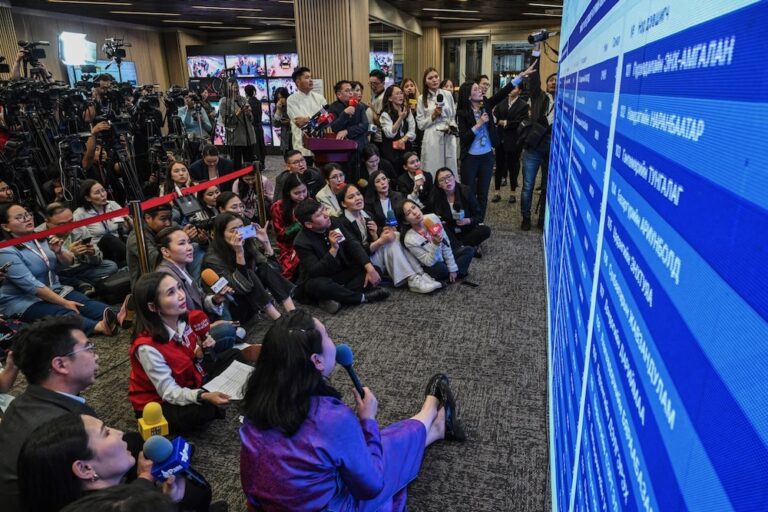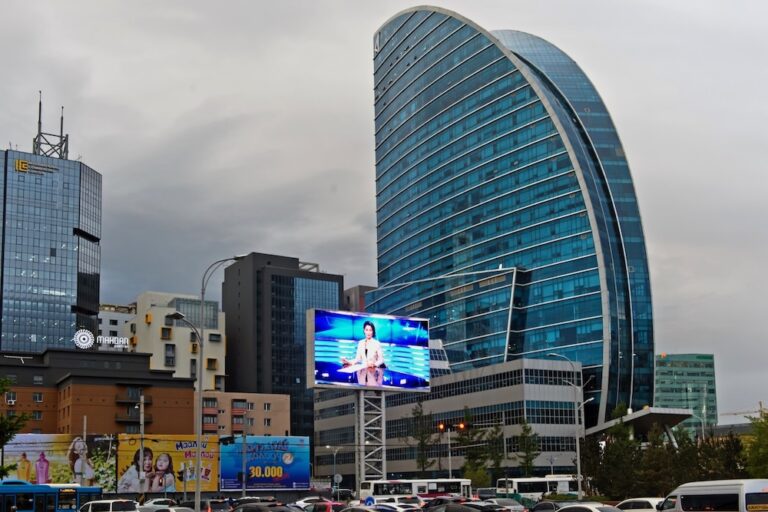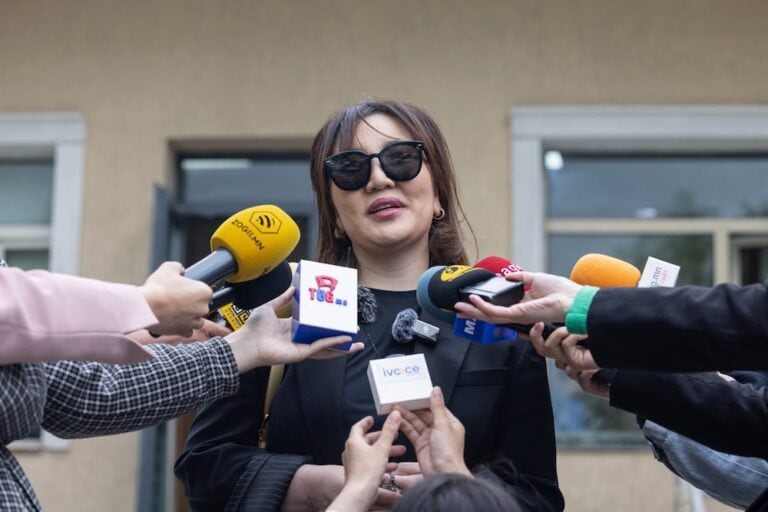(Globe International/IFEX) – On the night of 8 May 2006, a television crew, comprised of reporters M. Batdorj and T. Orgil and cameramen B. Uuganbayar and L. Bayanbat, all from the independent television channel Eagle TV, were assaulted by policemen in Sukhbaatar Square, in the centre of Ulaanbaatar, the capital of Mongolia, while covering actions […]
(Globe International/IFEX) – On the night of 8 May 2006, a television crew, comprised of reporters M. Batdorj and T. Orgil and cameramen B. Uuganbayar and L. Bayanbat, all from the independent television channel Eagle TV, were assaulted by policemen in Sukhbaatar Square, in the centre of Ulaanbaatar, the capital of Mongolia, while covering actions by Mongolian police who were tearing down the gers (traditional Mongolian dwellings) of protesters encamped in the square.
Since March, several civil society movements have been protesting against the current government over the pending stability agreement with the Canadian mining company, Ivanhoe mines; corruption; and the 2006 budget revisions.
Starting in mid-April, merchants from the burned-down SAPU shopping centre who had lost all their stock and were being denied compensation, joined the protesters. Because of an official visit by the South Korean President, city authorities demanded that the protesters remove their gers. The protesters did not comply and police came in the dead of night to forcefully remove the structures.
The Eagle TV reporters were roughed up by police when they tried to video record the action for the morning news. Police demanded that the journalists present identification to be allowed into Sukhbaatar Square, even though it is a public space, and then told them that they had no right to record the events, forcibly preventing the crew from taping. One police officer repeatedly smashed his fist into the camera, damaging it. Another took Orgil by the collar and dragged him away from the area controlled by police.
Orgil said that none of the senior police at the scene would answer his question, “Why do journalists need to get advance permission to record events in a public place like the central Sukhbaatar Square?”
The Eagle TV crew met with a Globe International lawyer and human rights monitor and handed over a video tape documenting police violence.
Globe International, deeply concerned about the incident, met with Colonel A. Davaakhuu of the Mongolian General Police Department. Davaakhuu said that “police who were at Sukhbaatar Square on this night contacted me when the Eagle TV crew arrived and I allowed them to enter and report. I did not hear anything about any conflict between the TV crew and police.”
Globe International has issued a media release on the incident addressed to Mr. D. Sandag-Ochir, General Police Department General Director, demanding an investigation into the case and a calling to account of any police found guilty of these actions.
In the media release, Globe International strongly reminded Sandag-Ochir that, “under current Mongolian law, it is a crime to interfere with the lawful professional activity of a journalist with the aim of promoting one’s own interests, and no action or irresponsibility by a government organization or its staff should deny the public its right to seek and receive information, as guaranteed by the Constitution.”


